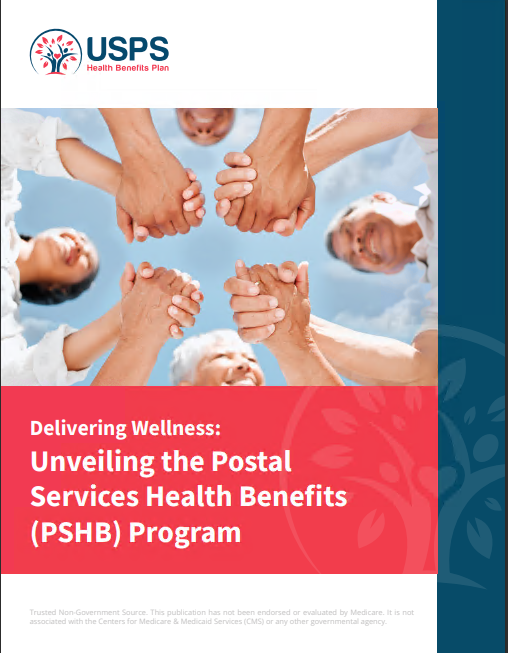Key Takeaways:
- Understanding the structure of co-pays for mental health counseling can help you manage your out-of-pocket costs effectively.
- Factors such as provider network status and specific health plan details significantly influence co-pay amounts.
What to Expect in Co-Pays for Mental Health Counseling with Postal Health Service
Accessing mental health counseling services through Postal Health Service benefits can provide essential support for maintaining your well-being. However, it’s important to understand the co-pays associated with these services to effectively manage your finances. This guide will cover what you can expect in co-pays for mental health counseling, how they affect your out-of-pocket costs, the factors that influence these amounts, the difference between in-network and out-of-network co-pays, and tips for managing and reducing co-pays.
Understanding Co-Pays for Mental Health Counseling
Co-pays are fixed amounts you pay out-of-pocket for healthcare services, including mental health counseling. These fees are typically required at the time of service and can vary based on your specific health plan and the type of counseling service you receive.
Types of Co-Pays
- Individual Therapy: Co-pays for one-on-one counseling sessions.
- Group Therapy: Co-pays for therapy sessions conducted in a group setting.
- Family Counseling: Co-pays for sessions involving family members.
- Specialized Therapy: Co-pays for specialized treatments, such as cognitive behavioral therapy (CBT) or dialectical behavior therapy (DBT).
Typical Co-Pay Amounts
Co-pays for mental health counseling services generally range from $20 to $50 per session, but this can vary widely depending on your health plan and the type of service. It’s important to review your specific Postal Health Service benefits plan to understand the exact co-pay amounts.
How Co-Pays Affect Your Out-of-Pocket Costs
Co-pays contribute to your overall out-of-pocket healthcare costs. Understanding how they impact your budget can help you plan and manage your expenses more effectively.
Out-of-Pocket Maximum
Your health plan may have an out-of-pocket maximum, which is the most you will pay for covered services in a plan year. Once you reach this amount, the insurance covers 100% of covered benefits. Co-pays contribute to this maximum, helping you reach it sooner and reducing your financial burden for the rest of the year.
Cumulative Costs
While individual co-pays might seem manageable, the cumulative cost can add up, especially if you require frequent counseling sessions. For example, if your co-pay is $30 per session and you attend weekly sessions, you could be looking at a monthly outlay of $120 or more.
Financial Planning
To effectively manage your out-of-pocket costs, incorporate expected co-pays into your monthly budget. Setting aside funds specifically for healthcare expenses can help you avoid financial strain.
Factors Influencing Co-Pay Amounts
Several factors influence the amount of co-pays for mental health counseling under Postal Health Service benefits. Being aware of these factors can help you anticipate and manage your expenses.
Health Plan Type
Different health plans have varying co-pay structures. For instance, HMO (Health Maintenance Organization) plans often have lower co-pays but require you to use in-network providers. PPO (Preferred Provider Organization) plans may offer more flexibility in choosing providers but can come with higher co-pays.
Provider Network Status
Whether you choose an in-network or out-of-network provider significantly impacts your co-pay amounts. In-network providers have agreed to negotiated rates with your insurance plan, resulting in lower co-pays. Out-of-network providers do not have these agreements, leading to higher out-of-pocket costs.
Type of Counseling Service
The type of counseling service you receive also affects co-pay amounts. Specialized treatments or sessions with certain providers (e.g., psychiatrists vs. psychologists) may come with different co-pays compared to general therapy sessions.
Frequency of Visits
Frequent visits can lead to higher cumulative costs. If you require intensive therapy, such as multiple sessions per week, your overall co-pay expenses will be higher.
Comparing In-Network and Out-of-Network Co-Pays
Choosing between in-network and out-of-network providers is a significant decision that affects your co-pay amounts and overall costs.
In-Network Providers
- Lower Co-Pays: In-network providers typically have lower co-pays due to negotiated rates with your insurance plan.
- Simplified Billing: In-network providers handle billing directly with your insurance company, reducing your administrative burden.
- Higher Coverage: Services from in-network providers are more likely to be fully covered by your insurance, minimizing unexpected costs.
Out-of-Network Providers
- Higher Co-Pays: Using out-of-network providers usually results in higher co-pays and out-of-pocket costs.
- Billing Complexities: You may need to submit claims yourself and wait for reimbursement, adding to your administrative tasks.
- Limited Coverage: Some services from out-of-network providers might not be covered, leading to additional expenses.
Decision-Making
While out-of-network providers can offer more flexibility and choice, it’s essential to weigh these benefits against the increased costs. For most people, sticking with in-network providers is the most cost-effective option.
Tips for Managing and Reducing Co-Pays
Managing and reducing your co-pays can help alleviate financial stress and ensure you receive the necessary mental health counseling without breaking
the bank. Here are some tips to help you manage and reduce your co-pays effectively.
Utilize Preventive Services
Many health plans offer preventive services without requiring a co-pay. These can include initial mental health screenings and wellness checks. Utilize these services to identify issues early and reduce the need for more intensive (and costly) treatments later on.
Opt for In-Network Providers
As discussed, choosing in-network providers can significantly lower your co-pay amounts. Always check your health plan’s directory or contact your insurance provider to confirm that a mental health counselor is in-network before scheduling an appointment.
Plan Ahead and Budget
Incorporate expected co-pays into your monthly budget to manage your finances better. Knowing your upcoming healthcare expenses can help you allocate funds accordingly and avoid unexpected financial strain.
Use Health Savings Accounts (HSAs)
If you have a Health Savings Account (HSA) or a Flexible Spending Account (FSA), you can use these pre-tax dollars to pay for your co-pays. This can reduce your overall taxable income and make managing healthcare costs more manageable.
Seek Sliding Scale Fees
Some mental health counselors offer sliding scale fees based on your income. If you are experiencing financial difficulties, ask potential providers if they offer this option to reduce your out-of-pocket costs.
Explore Telehealth Options
Telehealth services often have lower co-pays compared to in-person visits. Check if your health plan covers telehealth counseling sessions and consider this option to save on costs while still receiving quality care.
Review Your Health Plan Annually
Health plan benefits and co-pay structures can change annually. During open enrollment, review your health plan options and choose one that offers the best balance between coverage and co-pay amounts for mental health services.
Apply for Financial Assistance
Some mental health services may offer financial assistance or payment plans to help manage costs. Inquire about any available programs that could lower your financial burden.
Leverage Employee Assistance Programs (EAPs)
If your employer offers an Employee Assistance Program, take advantage of the mental health counseling sessions typically included at no cost. These programs can provide short-term counseling and referrals for further treatment.
Negotiate Payment Plans
If you anticipate ongoing or high costs, discuss payment plan options with your provider. Spreading payments over a more extended period can make co-pays more manageable.
Conclusion
Understanding and managing co-pays for mental health counseling under Postal Health Service benefits is essential for accessing necessary care without overwhelming financial stress. By being aware of the factors that influence co-pay amounts, choosing in-network providers, and utilizing various strategies to manage and reduce costs, you can effectively navigate your mental health care needs. Staying proactive about your benefits and financial planning ensures you receive the support you need while maintaining financial stability.
Contact Information:
Email: [email protected]
Phone: 9725550123











